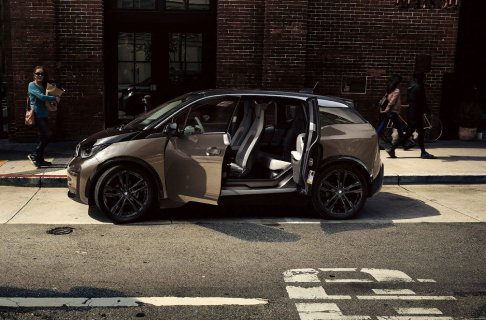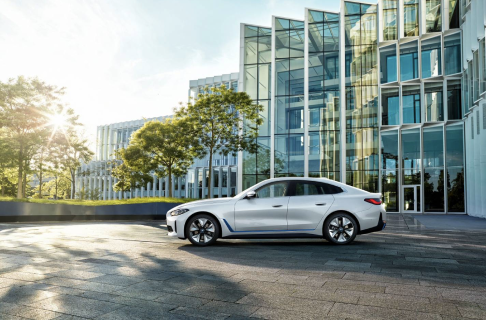
Mon-Fri 9am-5pm
Talk to our friendly electric car leasing experts now: 01942 910 001This website uses cookies to ensure you get the best experience. Learn more
What to know before leasing a company car
What is company car leasing?
Business contract hire as it is formally referred to, is a popular finance product for using a brand-new vehicle for a predetermined amount of time. As the name suggests, this is a fixed contract between the business and the leasing company to use the vehicle over 2, 3 or 4 years, with the understanding that the vehicle will be returned at the contract end. The business can set their own mileage (usually 5,000 - 30,000 per annum), the initial rental (or deposit) and either include a maintenance / service package or choose to administer this aspect internally (known as driver-maintained). Above all, it is important to note that this is all based on a fixed term contract which must either be fulfilled OR ended early via an Early Termination process. Contract hire is an alternative to purchasing an EV and is not a short-term solution like subscription and flexi-lease.
Business contract hire is an operating lease. For accounting and tax purposes, this means that the company is entitled to offset any rentals on an electric vehicle against Corporation Tax. Because these are zero-emission, 100% of the rentals are allowable against tax. For a car emitting 51g/km of CO2 (or higher), only 85% of the rentals are allowable - this is known as lease rental restriction or rental disallowance. For any VAT registered companies, you are entitled to claim up to 50% of the VAT on the finance element for a company car with private use plus 100% of the VAT on any maintenance aspects of the rental. But note that for a car with CO2 emitting 51g/km of CO2 (or higher), the unreclaimed VAT is restricted to 85% too.
All current and future lease activity, including Contract Hire, is now an “On Balance Sheet” finance product under IFRS16 rules, which means that this must be reported on your accounts. This has been in place since January 2019.
How does leasing work for a company car?
Our straightfoward company car leasing process
.jpg)
1
Choose a car which fits your company's needs from our top electric lease deals
2Select your contract length, mileage, initial rental and mainteance to suit your needs
3Talk to our company car leasing specialists and once approved, arrange delivery to your home or company premises
How does company car leasing work?
The fleet manager, employee or director must select a vehicle, or vehicles, which meet their requirements. Unlike traditional combustion cars (or vans), there needs to be more thought process into your EV selection. Much of this will relate to your annual mileage, as this often determines the range requirements, together with elements like charging capabilities, performance and vehicle cost. To help you choose the right EV, our leading comparison tool - helps drivers understand the key differences between the various brands and models. Not only that, each lease quote is accompanied with our EVC™, an Electric Vehicle Certificate, which appropriately synthesises the EV in a succinct format.
When you know the vehicle you require, you simply use the quote calculator on our e-car website to construct the correct arrangement for your needs and requirements; the end result is a monthly price for you to consider. You need to select a business profile on a leasing website, as opposed to personal, as this will show a VAT exclusive figure. As noted above, your accountant or finance manager / director, can ascertain the correct tax, VAT and financial calculations based on the vehicle. This allows them to construct what we call the “Effective Rental”.
When a suitable vehicle and contract has been chosen, before the company can order the vehicle they must first complete a proposal form / application for finance. As a credit broker, not a lender, the form our e-car team submits to the selected finance company is based on the information the customer provides. The form will ask for information relating to:
- The Company trading style - confirm if you are a sole trader, partnership or Limited company;
- The Company details - we need to know the name, address, registration number, date established and the date of your latest filed accounts (the extent of this information will depend on the trading style and the vehicle(s) required);
- Contact details - the director, fleet manager or employee who will liaise with the e-car team and the selected finance company (where this is a non-owner or listed director, a letter of authority may be required);
- Principal, Partner or Director details - finance companies need to understand who the leadership team are. This will require contact details, address history and some proof of identity for key personnel (this is a key part of the KYC process);
- Banking Details - the business bank details are required for setting up the direct debit to pay for the vehicle(s) every month; and
- Supplementary - depending on the type, size and status of the company, our e-car team may need additional information from the business such as the full accounts, management accounts, business bank statements or proof of identity and address for the owners/management.
Once the finance company approves the business for credit, this allows our team to generate order forms (together with our information notice, administration fee, key contract hire and key EV form). These forms must be signed by an owner, or individual with authority, so that our team can subsequently send an order to the supplying dealership. Based on your vehicle - stock, allocation or factory order - the time between order to delivery in leasing can be 2 weeks - 2 years! This ultimately depends on the vehicle required. While you await delivery, the finance company will send finance documents to the business (or our team on their behalf).
When the vehicle arrives in stock, so long as the finance documents have been signed properly, our team can arrange the delivery of the vehicle to your business premises, which you will have provided at proposal stage. Only with the permission of a director or owner, can we arrange delivery to another location e.g. the employee’s home address. At the point of delivery, a note / form needs to be signed to confirm this vehicle is correct and meets your expectations. Once you have completed this, the contract can be made live and rental payments are taken.
Who is company car leasing for - Ltd, v sole trader / partnerships v start-up
As detailed in our overview, there are considerable tax benefits for utilising contract hire and leasing for your new car. However, the process and availability of the product is bespoke to your business and it’s entity or status.
For sole traders and partnerships, there is no separate legal entity created. By this we mean the owner / proprietors are jointly and severally liable for the business including its obligations and debts. While the benefits of the finance product are in place for tax and costs, because the owners do not have the protection of an incorporated body, they will have to satisfy the outstanding rentals in an Early Termination process if the business no longer operates.
.jpg)
What other information is needed?
In addition to the information on the proposal form, many finance companies also require the following business financial information for sole traders and partnerships:
| Information Required | Amount (£) |
|---|---|
| Annual turnover for the last trading year | |
| Annual cost of sales | |
| Annual expenses |
The information here is found in your Annual Tax Return which you / the accountant submits to HMRC. For example the turnover will be found in Box 15 for a sole trader and Box 9 for a partnership or the cost of sales in Box 17 for a sole trader and Box 11 for a partnership.
With a limited company (Ltd), as a separate legal entity the lease is between the company and the leasing company (known as lessor and lessee). As most of the information is available on Companies House and the proposal form, our team will only ask for additional information where there is a nuanced situation or where the finance company requests this from us. For example, if your latest filed accounts are nearly out of date, draft accounts may be requested or where the company is owned by a foreign company, there may be additional requests.
But for newly incorporated / start-up companies, i.e. with less than 1 or 2 year’s accounts on Companies House, there are additional requirements.
Because the finance company cannot make a lending decision based on financial information available in the public domain, the company will often need to support the application with bank statements, management accounts, a business overview and a director’s guarantee. In regards to the latter, one or more of the directors will be asked to provide a personal assurance that if the company does not meet the rentals, then the directors will be responsible in a personal capacity (subject to credit profile).
When employees are leasing a vehicle via company car scheme you do need to educate them on company car tax, private fuel tax and National Insurance Contributions. For sole trader and partnerships leasing a vehicle, because there is no veil of incorporation there is no company car tax exposure for the owners. With employees in a limited company (including the directors), the use of the vehicle necessitates a paying of tax to HMRC (see the gov.uk article on tax for company cars). This is calculated by using the P11d value of the car (the list price before VAT and the first registration fee PLUS any additional options or extras), the CO2 (this determines the Benefit in Kind % or BiK) and the income tax banding of the employee. In short, the more expensive and more polluting a car is, the higher the level of tax an employee will pay. This is why electric cars, which have zero-emissions, are so popular for business fleets as they present the most tax efficient solution. A company car tax calculator is available on the e-car website for all EVs.
What happens at the end of your lease?
Strictly speaking, the business is responsible for understanding the contract end date for the vehicle, which is communicated to them via the leasing broker and the finance company. However, you will be pleased to note that at e-car lease our team will inform you of the 1 year anniversary (for ascertaining mileage and servicing) plus a “6-month remaining” reminder. Many finance companies allow you to organise the collection process internally but in other instances you will have to use your nominated leasing broker to help organise. In most cases, you need to allow for at least one week notice period for arranging the collection.
.jpg)
As part of preparing your lease vehicle at end of contract you need to ensure:
- Mileage - check the mileage at vehicle return. If this exceeds the contract maximum, the company will pay an Excess Mileage bill (the amount for which is communicated to you at the quotation, order and finance documentation stage);
- Service and maintenance - ensure you have records of the vehicle’s service history where you elected to pursue a driver-maintained agreement (one where you pay for all servicing, maintenance and tyres). If there is a handbook, ensure this has been stamped. As most servicing is performed digitally, proof of invoice and payment is enough to cover any discrepancies. Depending on your finance company, ensure you service the vehicle correctly - this will be at a franchised dealership or at a VAT registered garage using genuine manufacturer parts (check the terms of the lease);
- Tyres / Wheels - legally the minimum tread depth should be 1.6mm, although most leasing companies will change your tyres at 2mm where it is funder-maintained (cost of service and maintenance included). You will be charged for illegal tyres or where there is damage to the sidewall (often by curbing). For any alloys, the scuffs which exceed 25mm will lead to charges; and
- Bodywork and external appearance - light scratches of up to 25mm, dents of 10mm or smaller and minor chipping and road wear is acceptable. However, larger damage, dents or windscreen chips must be fixed before collection. Failure to do so will lead to charges at the collection process.
Most finance companies outsource their collection to auction houses like the BCA and Manheim, who will send a representative to both appraise and drive your car away. Because of modern technology improvements, the collection agent will photograph and video the collection process, with charges outlined to the customer at the point of collection.
For any companies concerned about the collection process, or standards, the industry ombudsman - the BVRLA - has put standards in place to regulate this. For more information visit the BVRLA returning your leased vehicle guide.
Pros and cons of a company car lease
If you are thinking car leasing, here are some important points to weigh up.
Pros
Low initial rental (no deposit) options available – the initial rental is not a refundable deposit. This forms part of the finance and so you can decide how to structure the arrangement i.e. small or large initial rentals. For some businesses, the ability to protect cash-flow is paramount. Leasing allows you to avoid any upfront commitments such as VAT or holding deposits;
No depreciation concerns – contract hire and leasing is a usership product. This means the risk of any deprecation or valuation rests with the finance company. Because electric car values can change more frequently, this is especially useful for any EV where a company does not want to undertake any unnecessary risks or administration. Regardless of the end value, the vehicle is returned to the finance company for disposal and is not a risk to the company;
Cost certain – if you include a funder-maintained package, then all the normal running costs of servicing, maintenance, tyres and breakdown are included for the duration. You only need to factor into this the cost of motor or fleet insurance and fuel. With EVs you do also have to factor into the costs of any charging infrastructure. But with more collaboration in the EV industry, some of these costs can be included and agreed for the duration of the contract;
Leasing is a tax efficient product – monthly rentals can be offset against taxable profit. If you are VAT registered, you can claim up to 50% of the finance rentals and 100% of the maintenance rentals;
Company car tax – the low % BiK rate for EVs present a huge cost-saving for the individual company car driver. For the first time in a number of years, it is possible to have an almost FREE company car.
Cons
You won't own the vehicle - this is not suitable for those businesses who wish to own a vehicle because contract hire and leasing is not an ownership product. If electric cars continue to grow in popularity, those businesses who undertake a purchase-style product may benefit from any potential equity in the vehicle. If a car is worth more than the finance company anticipated, then they will benefit from the profit in any lease arrangement;
You will be charged for damage - this applies to any damage or issues that are not acceptable under the BVRLA’s Fair Wear and Tear Guide (available upon request). If you have a driver who is not careful with your company vehicles, you are at risk of being charged at the contract end;
Excess mileage charges – if you go beyond the contract mileage maximum, your business will be charged. This is often an amount shown in “pence per mile” at quotation, order and finance document stage. In some cases where mileage is well in excess of the agreed contract, this can be a substantial bill (regardless of the auction price or value of the vehicle); and
Early termination charges – as leasing is a fixed term contract, if you want to change, upgrade or just return the vehicle then you have to undertake a set process. In this way, leasing is not a flexible solution compared to purchase-style products or subscription. The Early Termination process is bespoke to each finance company but often involves paying half of the remaining rentals. Again, this is regardless of the auction price or value of the vehicle.
The Different types of business finance products
The contract hire (usership) route is not the ONLY way in which a business can procure their vehicles or EVs. There are additional products which may be more suitable for their needs and requirements, so these must be considered as part of the process.
Finance Lease - this is an operating lease, so the accounting aspect is treated in exactly the same way as contract hire. However, this type of lease is slightly different in that the contract will present a predetermined final rental / balloon, which must be satisfied to the finance company at the contract end. This is a way in which the customer can effectively build up equity in the vehicle and, subject to satisfying the balloon, retain any equity when the vehicle is sold to a 3rd party. The pros of finance lease are that low initial rental / deposit options are available, funder-maintenance packages are sometimes available, the VAT on the finance and maintenance elements can be reclaimed, the contract can be more flexibly ended and there are no damage / excess mileage charges payable to the finance company. The cons of finance lease are that there are risks to the business if the market changes and the car loses value and you cannot purchase the vehicle (MUST be sold to a 3rd party).
Contract Purchase - this is a purchase based agreement where the business will make a series of payments as part of working towards ownership of the vehicle. A guaranteed residual value / final payment, is present on the contract which allows the customer to either purchase the vehicle, hand it back or refinance the final payment. The pros of a Contract Purchase are that the purchase cost is deductible via capital allowances (for zero-emission EVs 100% of the vehicle’s cost can be reclaimed), flexible contract terms, in some cases a funder-maintenance package is available and there is flexibility at contract end. The cons of a Contract Purchase is that the VAT must be paid upfront (so this impacts cash flow) and some manufacturers offer less discount.
Hire Purchase - this is a typical car finance product in the used-car sector but which is equally available for new cars too. Again, this is a purchase style product which is focused on a company purchasing the asset. Generally you pay a deposit and over a fixed term contract, pay the car finance payments in order to own the vehicle (in conjunction with an option to purchase fee). The pros of Hire Purchase are the fixed monthly payments, capital allowances which enables the full cost of the vehicle to be claimed against any tax exposure (100% for EVs with 0 g/km of emissions), allows the business to own the vehicle at contract cessation and the lending criteria is more flexible for those with businesses with weaker accounts or credit. The cons of Hire Purchase are that it generally necessitates big deposits, monthly payments are generally more expensive compared to leasing products due to discounts and terms and the risk of vehicle depreciation lies with the company.
Electric Vehicle CertificateTM
“We’ve created the EVCTM, along with our expert partners, to provide you or the business with the key details required as part of choosing your perfect EV. Everything you need to know from the UK’s leading EV leasing broker in one place.”
- Rob King (MD)
Popular business lease guides
Our customers say
We care about your feedback
e-car lease work alongside these select finance companies:





e-car lease have a partnership and affiliation with:



Register & get new deals weekly
 Exclusive offers
Exclusive offers
 Electric-only deals
Electric-only deals
 Never miss out
Never miss out

Talk to one of our experts
01942 910 001 Email us© Copyright 2025 e-car lease. All rights reserved. e-car lease is a trading name of CarLease (UK) Ltd, e-car lease is a credit broker and not a lender. We are authorised and regulated by the Financial Conduct Authority. Registered No: 706617. BVRLA Membership No. 1471. Registered in England & Wales with Company Number: 09312506 | Data Protection No: ZA088399 | VAT No: 200422089 | Registered Office: Kings Business Centre, Warrington Road, Leigh, Greater Manchester, WN7 3XG
Made by morphsites®


















